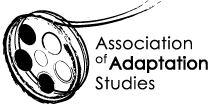A Conversation with Andrew Davies - 10 September 2020
Andrew Davies, prolific writer of screenplays and novels, who has been called, the ‘universal adaptor’ for creating some of the most memorable moments in television, will be interviewed by Professors Deborah Cartmell and Justin Smith on September 10, 12-30 – 2.00 pm, followed by a Q&A with the audience.
New Book: Theorizing Adaptation
From intertextuality to postmodern cultural studies, narratology to affect theory, poststructuralism to metamodernism, and postcolonialism to ecocriticism, humanities adaptation studies has engaged with a host of contemporary theories. Yet theorizing adaptation has been declared behind the theoretical times compared to other fields and charged with theoretical incorrectness by scholars from all theoretical camps. In this thorough and groundbreaking study, author Kamilla Elliott works to explain and redress the problem of theorizing adaptation.
AAS Conference 2020 Cancelled
Please see the letter below from Shannon Wells-Lassagne and Candice Lemaire (conference co-organizers) concerning the decision to cancel this year's Association of Adaptation Studies conference.
Call for Papers: The Medial Afterlives of H.P. Lovecraft
We are seeking essays dealing with medial adaptations of the work of H.P. Lovecraft. Amidst the recent Lovecraft renaissance, the adaptation of Lovecraft’s stories, but also of “Lovecraftian” themes and motifs, into various kinds of audiovisual narratives has proliferated and become vastly successful in a number of guises. Critical discussions of this phenomenon, however, have often been restricted to the identification of Lovecraft’s themes, adaptation’s fidelity to Lovecraft’s texts, and the influence of Lovecraft on contemporary horror and weird fiction more generally. The proposed collection will expand the discussion of Lovecraft adaptation by interrelating strongly on the concrete formal and medial choices of adaptations with the specific demands (if there are any) of Lovecraft(ian) fiction. Departing from a theoretical discussion that has seen Lovecraft as either congenial to adaptation or entirely resistant to it, it aims to understand Lovecraftian adaptation as a means of negotiating different ways of representing the unrepresentable, and to question the notion of the unrepresentable itself. Lovecraftian adaptation goes beyond its own relation to Lovecraft’s fiction, and helps us understand the respective affordances of written fiction versus audio visual media, permitting us not just to see the peculiarities of Lovecraft better, but also to ask fundamental media-theoretical questions.
Call for Papers: Work & Play: 2020 Literature/Film Association Conference
Holding the annual conference of the Literature/Film Association in New Orleans raises questions of labor and leisure in relation to adaptation in the study of literature, film, and media. Not only has the city served as the home to writers and filmmakers, but it also has become a major media capital in its own right, enticing television and film production with tax incentives and its distinctive culture. As “work” and “play” have motivated a good deal of recent scholarship across literature, film, and media studies, we invite presentations that put these concerns in conversation with adaptation, broadly defined.
Call for Papers: Transmedial Turn? Potentials, Problems, and Points to Consider
Following the 1st International Conference on Intersemiotic Translation, held in November 2017 at the University of Cyprus, this conference aims to address the theoretical and practical challenges that the shift away from the logocentric to increasingly intersemiotic, intermedial and transmedial culture poses for the relevant fields, which are consequently forced to re-examine their concepts, methods as well as objects of study.
AAS Conference 2020: Borders in/of Adaptation
For the 2020 edition of the Association of Adaptation Studies, we would like to examine the presence and nature of borders as they appear in adaptations. Much recent work in adaptation studies has focused on expanding the scope of the discipline, beyond the dichotomy of book and film that dominated early studies in the area – while outside the ivory towers, borders between nations have been an increasingly contentious subject in public and private discourse.
